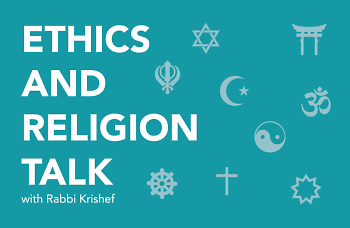The Rev. Sandra Nikkel, head pastor of Conklin Reformed Church, responds:
It's the most important thing there is!
The God who made the Heavens, the Earth, the moon, the sun and the stars, the God who made our souls and formed us, longs to have a personal and close relationship with each one of us--regardless of what we have done! God loves us so much that he pierced the earth by being born like one of us. He came to bridge the gap that separated us from Him because He wants us! His purpose was to redeem us from our fears and help us to live in peace and joy, connected to him, as one of his children for Eternity.
Religion cannot and will not substitute a true relationship with God; guidelines and rituals will not suffice--only an open, willing, and humble spirit will do. In James 4:8 we read that if we draw near to Him, He will draw near to us! And in Micah 6:8, God outlines what He expects from us saying: "He has shown you, O mortal, what is good. And what does the Lord require of you? To act justly and to love mercy and to walk humbly with your God. "
Fred Stella, the Pracharak (Outreach Minister) for the West Michigan Hindu Temple, responds:
Hinduism in made up of hundreds, perhaps thousands of movements, sects, denominations, etc. Some of the teaching traditions strongly recommend a path that focuses on the personal aspect of God. But others are more focused on the impersonal aspect. According to my school, known as Advaita Vedanta, seeing God as personal is a very important step on the path to Self-realization. But as one grows in practice, form dissolves into formlessness. God is then seen not as a person or deity, but as pure unadulterated bliss and consciousness. The ultimate goal is union with that which we refer to as Satchitananda: Ever-Existing, Ever-Conscious, Ever-New Bliss.
Rev. Ray Lanning, a retired minister of the Reformed Presbyterian Church of North America, responds:
A personal relationship with God through Jesus Christ lies at the heart of all true Christianity and therefore all true Presbyterianism. Faith in an unknown, unloved, and unserved God is a dead faith, a faith that cannot save, and certainly not the “faith that worketh by love” (Galatians 5:6), described by the apostle Paul. The great truth of the incarnation of Christ, commemorated at Christmas, is that God has come to us in such a human way that we can all relate to Him and know Him in the person of His Son. “This is life eternal, that they might know Thee, the only true God, and Jesus Christ, who Thou hast sent” (John 17:3).
The first and great commandment, according to Christ, is to “love the LORD thy God with all thy heart, and with all thy soul, and with all thy mind” (Matthew 22:37). If you love God, you want to be reconciled to Him if sin has separated you from Him. You want to hear what He has to say to you in His written Word, and live as He commands. You want to meet with Him daily in private prayer, and corporately, in the worship of His church. Otherwise all these acts become lifeless, empty formalities.
The Reverend Colleen Squires, minister at All Souls Community Church of West Michigan, a Unitarian Universalist Congregation, responds:
In Unitarian Universalism it is up to the individual to decide how important it is to them individually about having a relationship with God. In general, what we believe is up to the individual.
Father Kevin Niehoff, O.P., a Dominican priest who serves as Judicial Vicar, Diocese of Grand Rapids, responds:
A personal relationship with God is essential! According to St. Anslem, “faith seeks understanding.” Faith without understanding is like a house built on sand. A metaphorical flood will come to destroy what has a poor foundation.
Faith is like a well. Rain must replenish the water table to keep water in the well. Without a personal relationship with God, faith may wither and blow away in the wind.
Another analogy is friendship. One will likely not keep a friend with whom they spend no time. Friends share deeply with one another. A closeness with God requires spending time together, especially in prayer.
My response:
It’s funny how Rev. Nikkel and I can share the same verse for the opposite purpose. She quotes Micah 6:8 to prove that the relationship with God is primary, and guidelines and rituals are insufficient. I will quote the same verse in Micah to prove that it is actions that are important, not belief (“act justly”), and walking humbly with God means precisely following God’s guidelines, rules, laws, and rituals. From a Jewish perspective, good behavior is what God prefers over belief in God or a relationship with God.
This column answers questions of Ethics and Religion by submitting them to a multi-faith panel of spiritual leaders in the Grand Rapids area. We’d love to hear about the ordinary ethical questions that come up in the course of your day as well as any questions of religion that you’ve wondered about. Tell us how you resolved an ethical dilemma and see how members of the Ethics and Religion Talk panel would have handled the same situation. Please send your questions to [email protected].
The Rapidian, a program of the 501(c)3 nonprofit Community Media Center, relies on the community’s support to help cover the cost of training reporters and publishing content.
We need your help.
If each of our readers and content creators who values this community platform help support its creation and maintenance, The Rapidian can continue to educate and facilitate a conversation around issues for years to come.
Please support The Rapidian and make a contribution today.
